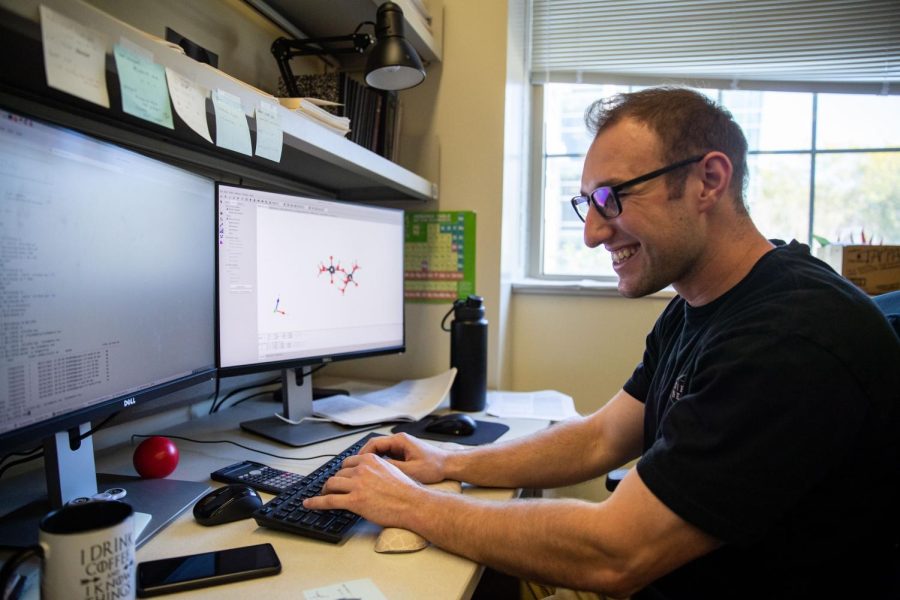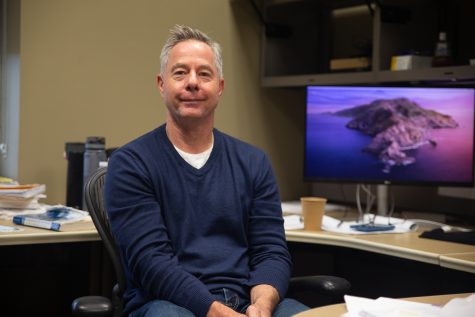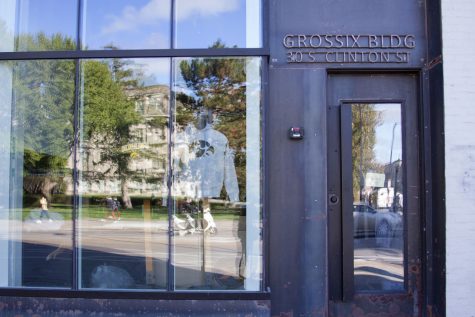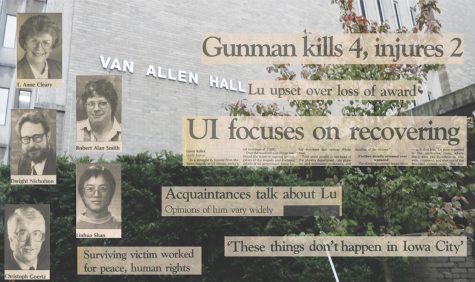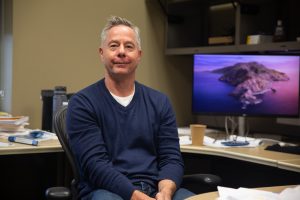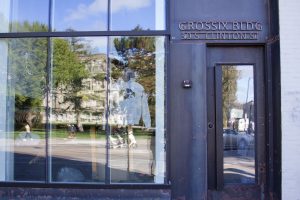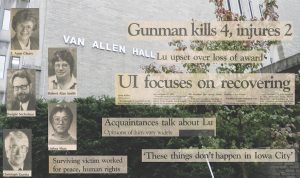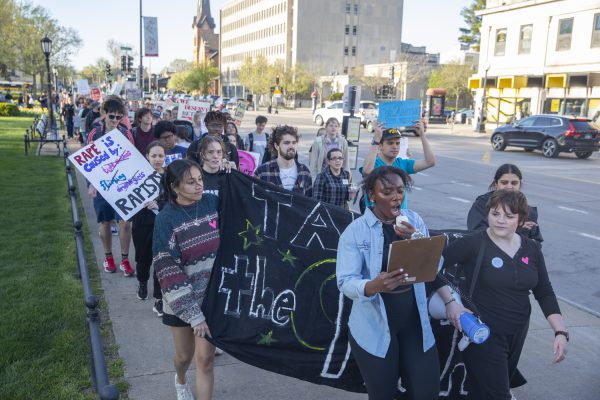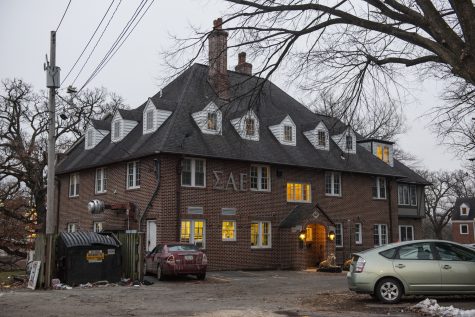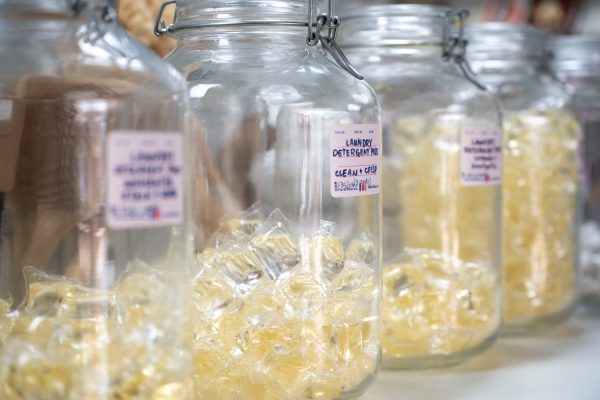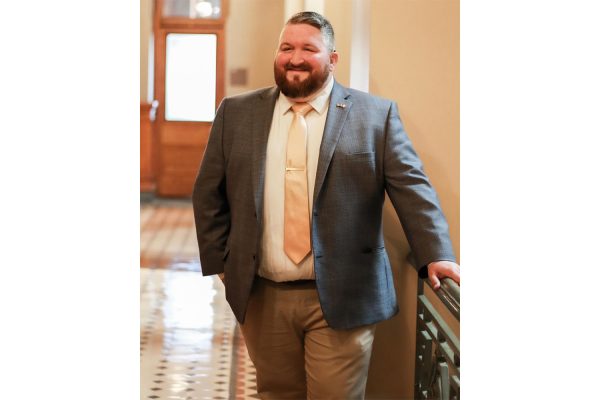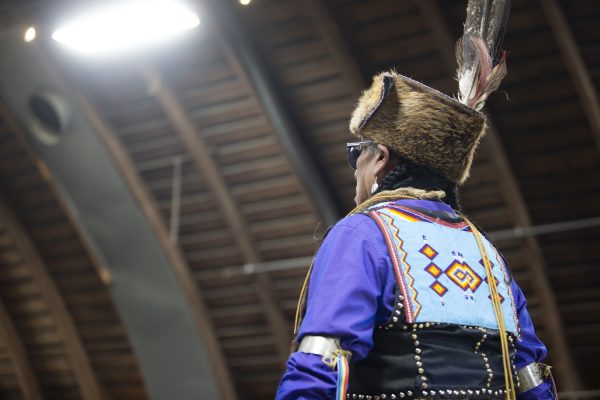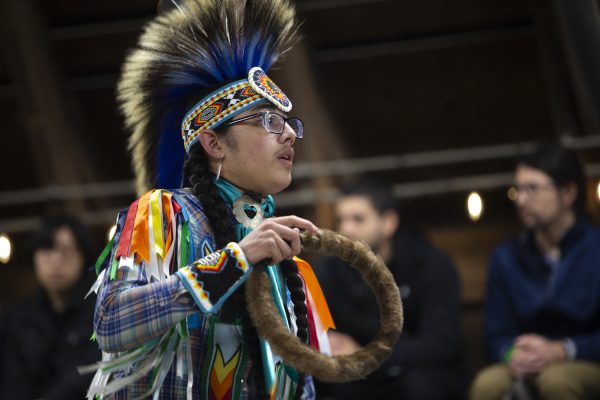UI grad student Logan Augustine heads for Los Alamos after winning national research award
Awarded a prestigious Department of Energy Office of Science Graduate Student Research award, University of Iowa graduate student Logan Augustine will head to the Los Alamos National Laboratory to conduct research that could reduce radiotoxicity in nuclear waste.
University of Iowa graduate student and Ph.D. candidate Logan Augustine poses for a portrait inside the chemistry building on Oct. 26.
October 31, 2021
University of Iowa graduate student Logan Augustine is taking steps to make nuclear power a safer source of energy.
Augustine, a fourth-year graduate student in the Department of Chemistry and member of the Mason Group — a computational chemistry group at the UI — received a U.S. Department of Energy Office of Science Graduate Student Research Award this fall.
The project could lead to the reduction of radiotoxicity of nuclear waste and the recycling of neptunium for more nuclear processing.
“[Neptunium] is a specific radioactive actinide element,” Augustine said. “A big reason people study neptunium chemistry is for nuclear waste reprocessing.”
He said he will use computational chemistry — a form of chemistry that uses computer simulations to solve problems — to extract Neptunyl ions from nuclear waste at the Los Alamos National Laboratory in New Mexico. The fellowship will last a year, starting in January 2022, and will serve as a part of his thesis research, Augustine said.
According to the U.S. Energy Information Administration, there are 94 nuclear reactors in use at 56 nuclear power plants in 28 states, including Iowa, and the U.S. produces more nuclear power than any other country.
Augustine said Neptunyl ions, which he described as a linear molecule composed of one neptunium atom and two oxygen atoms, are particularly damaging sources of radioactivity.
“A lot of times when [scientists] do nuclear reactions from nuclear energy and everything, one of the side products that comes from it is this neptunium element, and it is very radioactive,” he said. “It’s an alpha emitter, and its half-life is like two million years — maybe a little bit over two million years.”
Currently, Augustine said the neptunium produced by nuclear reactions is stored on the sides of mountains where people are less likely to be exposed to it.
As an alternative way to dispose of neptunium, Augustine said he is interested in potentially learning how to convert it or using the extraction as recycled fuel for more nuclear reactions.
Separating the element alone is useful for reducing radiotoxicity and nuclear waste, he said.
If he can make the neptunium hydrophobic, or averse to water, he said it can be extracted from the nuclear waste as a separate layer. Augustine compared this to layers of salad dressing that stack on top of one another without mixing.
Augustine’s academic advisor, Sara Mason, who is also a UI associate professor of chemistry and director of the Mason Group, said she will still be involved with Augustine’s research in Los Alamos.
“He has worked on a variety of projects since starting with me,” she said. “But all of them use electronic structure calculations to understand and predict the properties of materials.”
Mikaela Pyrch, a UI graduate student in the department of chemistry and member of the Forbes Group — the hands-on complement to the computer-oriented Mason Group — said Augustine’s award will allow him to develop new skills that can be applied to their shared work at the UI.
“I think Logan’s uniquely situated to be successful there,” Pyrch said. “He’s a creative problem-solver, and sometimes when you get stuck especially in more of an analytical, computational, mathematical side, he can see the problem that’s going to be really beneficial and then fix it and move on.”
Augustine recently had two significant scientific successes, Mason said.
One is the award, which allows him to do research in Los Alamos, she said. He is also the co-principal investigator on a National Science Foundation Extreme Science and Engineering Discovery Environment grant for computer science in 2021.
Mason said the National Science Foundation grant gives the UI research group access to federal supercomputers to do research.
“He played a big role in basically scoring us time and access to those resources,” she said. “Logan is a student who has built a castle brick by brick … He’s the sort of person where you give him an idea or a project, and he takes it in his own direction.”



